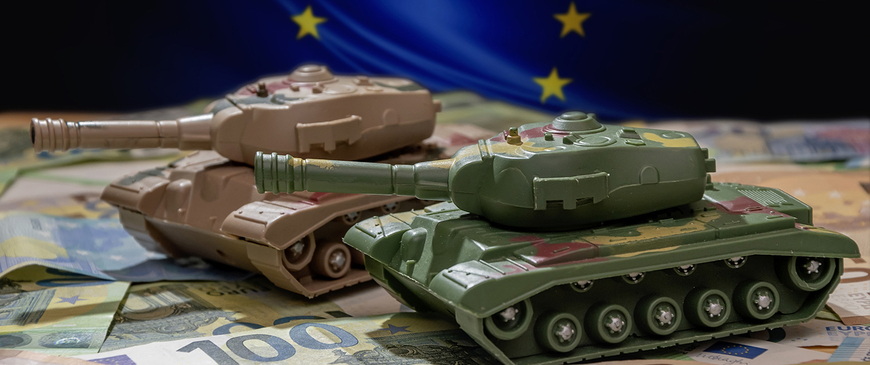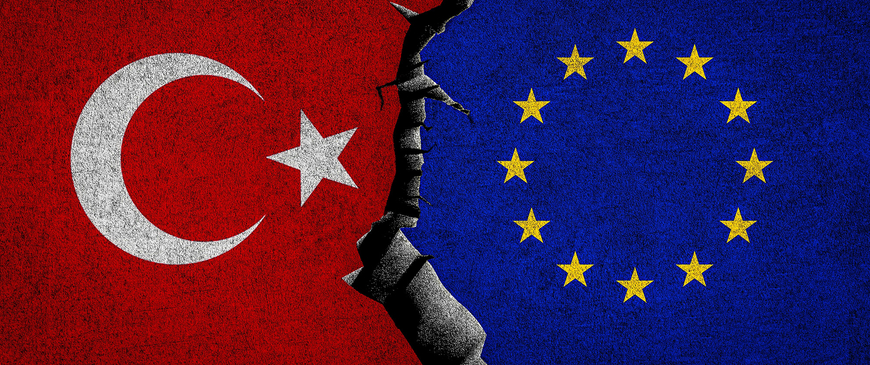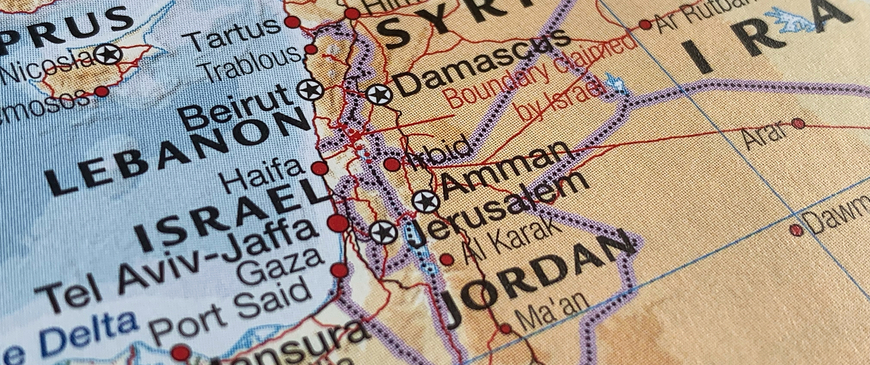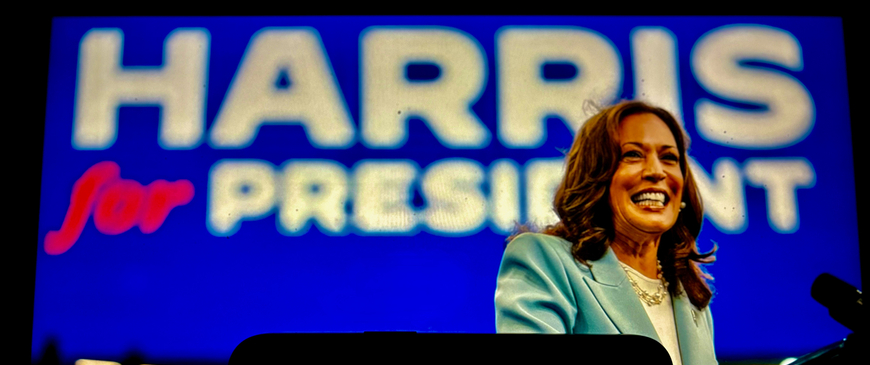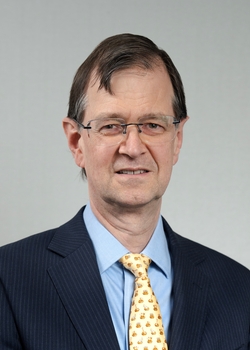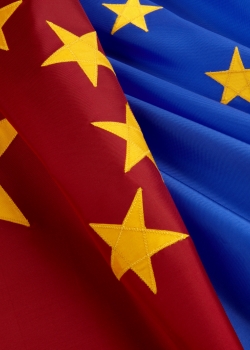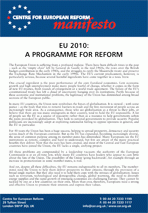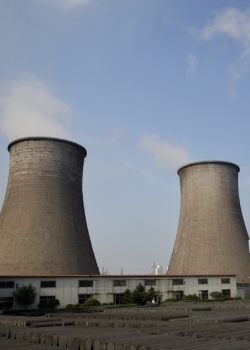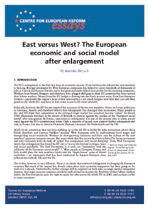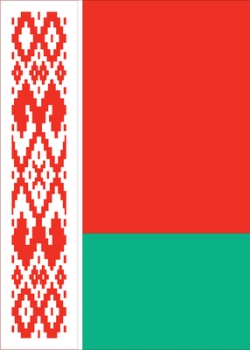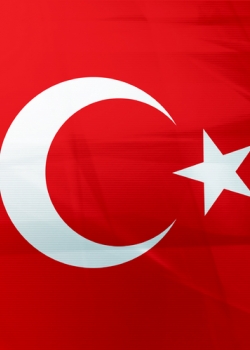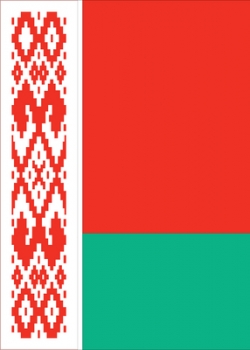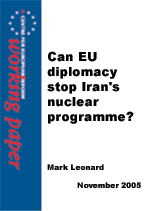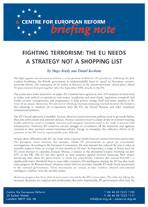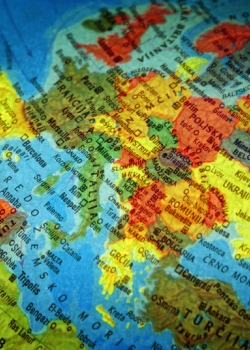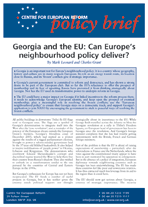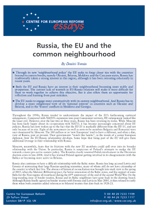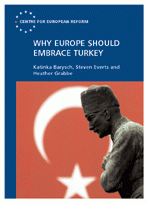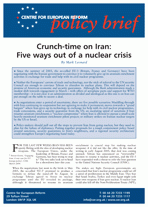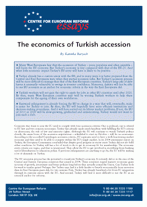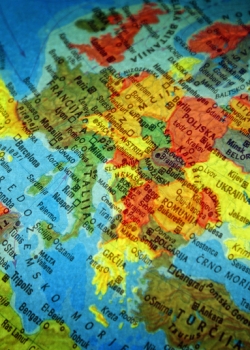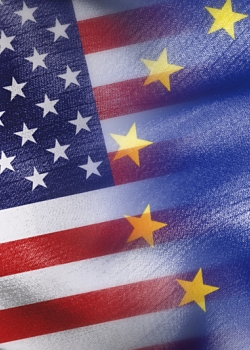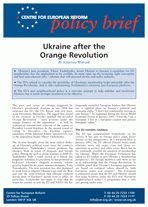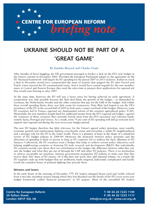Foreign policy & defence
Issue 47 - 2006
24 March 2006
- A new European approach to China, Mark Leonard
- What future for free trade in services?, Simon Tilford
- How to build a better EU foreign policy, Charles Grant, Mark Leonard
EU 2010: A programme for reform
03 February 2006
The European Union is suffering from a profound malaise. There have been difficult times in the past – such as the 'empty chair' left by General de Gaulle in the mid-1960s, the rows over the British budget contribution in the early 1980s, and the struggles to ratify the Maastricht treaty...
The EU needs a bolder Balkan strategy
01 February 2006
The Balkans are returning to the top of the EU’s agenda. UN envoy Martti Ahtisaari has begun to negotiate Kosovo’s future, while Montenegrins will probably vote in April on whether to break with Serbia.
Issue 46 - 2006
27 January 2006
- The EU must do more on climate change, Stephen Tindale
- India and the EU: strategic partners?, Charles Grant
- The EU needs a bolder Balkan strategy, Carl Bildt
East versus West? The European economic and social model after enlargement
06 January 2006
The EU's enlargement to the East has been an economic success. Trade between the old and the new members is thriving. Foreign investment by West European companies has helped to create hundreds of thousands of jobs in Central and Eastern Europe, and it has generated multi-billion euro profits for the investing companies.
The EU needs a policy on Belarus
01 December 2005
The first time that I visited Belarus, I noticed that the streets were clean, the subway ran on schedule and the people were very hospitable. On the surface, the people of Minsk seem to enjoy life.
Some advice for Turkey
01 December 2005
Turkey remains far from its goal of entering the EU, despite starting accession talks in October and gaining a broadly favourable progress report from the European Commission in November.
Issue 45 - 2006
25 November 2005
- The EU needs a policy on Belarus, Urban Ahlin
- Some advice for Turkey, Katinka Barysch
- Easing the pain of trade liberalisation , Richard Cunningham
Can EU diplomacy stop Iran's nuclear programme?
04 November 2005
When Iran restarted its nuclear programme in August 2005, it seemed to obliterate two years of EU efforts to persuade Tehran not to build a nuclear bomb. However, Mark Leonard argues that the EU should persevere with diplomacy.
Fighting terrorism: The EU needs a strategy not a shopping list
11 October 2005
The fight against international terrorism is a key priority of Britain's EU presidency. Following the July London bombings, the British government is understandably keen to speed up European counter-terrorism efforts.
Can variable geometry save EU enlargement?
03 October 2005
All over Europe, politicians are becoming more hostile to further EU enlargement. One reason is that electorates in many countries oppose it. Another is that the EU’s ‘widening’ has always been closely linked to its ‘deepening’.
Georgia and the EU: Can Europe's neighbourhood policy deliver?
03 October 2005
All public buildings in downtown Tbilisi fly EU flags next to Georgian ones. The flags are a symbol of Georgia's determination to integrate itself into the West after the 'rose revolution', and a reminder of the potency of the European dream outside the European Union's borders.
Russia, the EU and the common neighbourhood
02 September 2005
Throughout the 1990s, Russia tended to underestimate the impact of the EU's forthcoming eastward enlargement. Compared with NATO's expansion into post-Communist territory, EU enlargement looked like the lesser evil.
Why Europe should embrace Turkey
01 September 2005
A majority of voters in the EU, and many politicians, oppose Turkish accession. The essays in this report examine the fears concerning Turkey's membership and argue that many of them are misplaced.
Crunch time on Iran: Five ways out of a nuclear crisis
01 August 2005
For the last few weeks Iran has been openly flirting with the idea of developing nuclear weapons. The European Union, under the leadership of Britain, France and Germany, has been trying to stop it.
The economics of Turkish accession
01 July 2005
Countries that want to join the EU need to comply with four accession criteria: One is political, one is related to EU law and two concern economics.
One year after enlargement
01 April 2005
When the EU took in ten more countries in May 2004, many people across Europe feared that an enlargement of that size would wreak havoc in the European economy and bring EU decision-making to a halt.
Issue 41 - 2005
25 March 2005
- What new transatlantic institutions?, Charles Grant, Mark Leonard
- Clumsy politics on services, John Monks
- One year after enlargement, Katinka Barysch
Ukraine after the Orange Revolution
04 February 2005
The pace and scope of change triggered by Ukraine's presidential elections in late 2004 has surprised the EU, the US, Russia and, not least, most Ukrainians themselves.
Ukraine should not be part of a 'great game'
08 December 2004
In their reporting of the crisis in Ukraine, the world's media have focused on the pro-Yushchenko demonstrators. But while this manifestation of 'people power' has understandably grabbed the headlines, another, more sinuous tale has unfolded in the chancelleries and foreign ministries of EU capitals, Moscow and Washington.

